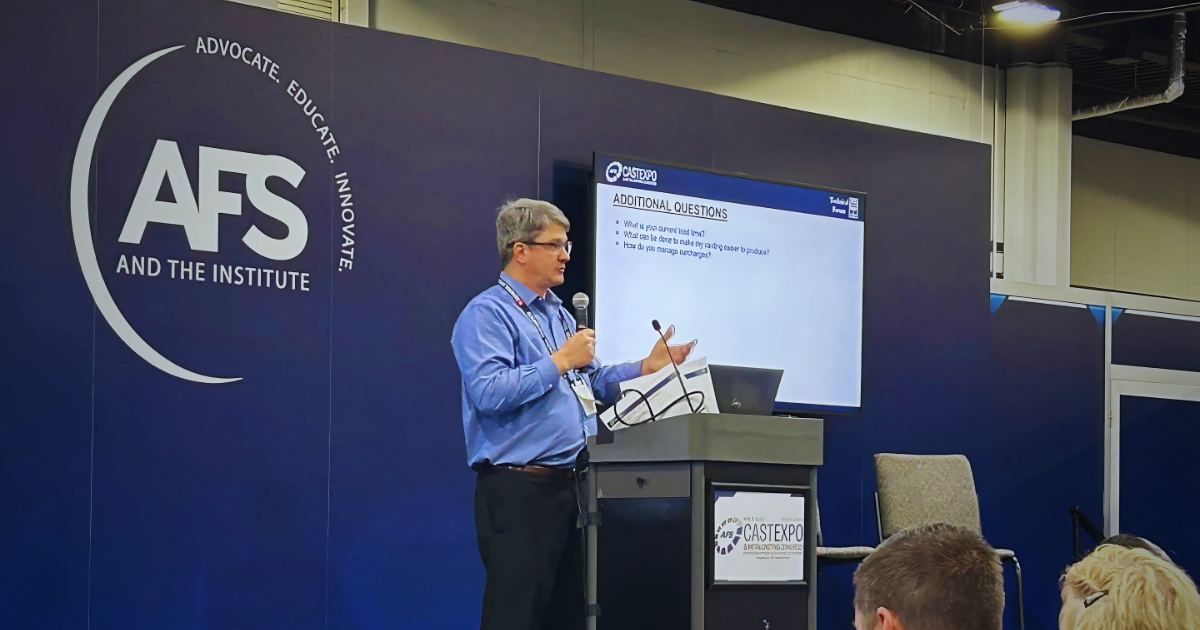When it comes to sourcing castings, choosing the right foundry partner can make or break your project. At CastExpo 2025, in front of a large audience of foundry experts, Wendell—General Manager of Kent Foundry and Foundrion US General Manager—presented a practical and insightful framework for evaluating prospective foundry partners, rooted in real-world production realities rather than glossy sales brochures.
1. Start with Fit: Does My Casting Belong Here?
The first and most critical question to ask a potential partner is whether your casting actually fits their foundry’s process window. This goes beyond just physical size—it includes alloy capabilities, flask and molding limits, weight thresholds, and melting capacities. Some foundries excel in large-volume production, while others are built for short runs or complex geometries. A good foundry will tell you up front if your part is a fit—or not.
2. Know What Kind of Relationship You Want
Is this a one-time project or the beginning of a long-term partnership? Are you looking for a primary supplier or backup capacity? The answers will shape your decisions on tooling, lead time, and pricing. Mutual clarity ensures better alignment—especially for repeat production work.
3. Dig Into the Details: Specs, Services, and Tooling
Casting is only part of the equation. Do you need tight tolerances, machining, NDT, painting, or heat treatment? Will you be supplying tooling, or is the foundry building it? What material will the tooling be made of? Every detail affects cost, quality, and turnaround time—so ask early.
4. Ask the Hard Questions on Quality
A reliable foundry is transparent about quality. Ask about ISO certifications, internal scrap rates, audit history, and NDT methods like ultrasonic or X-ray. One underutilized question: What’s their warranty cost as a percentage of sales? It’s a direct indicator of real-world reliability.
5. Visit the Shop
A plant visit reveals more than a quote ever can. If they’re hesitant to host you, that’s a red flag. Look for shop organization, technical depth, and team engagement. Meet the engineers, estimators, and operators to understand their capabilities with castings like yours.
6. Go Beyond Price: Ask What Can Be Improved
Top-tier foundries don’t just quote—they collaborate. Ask how they would improve your design for castability or cost savings. Inquire about alloy surcharges and lead times. These conversations uncover operational maturity and a foundry’s true investment in your success.
Conclusion
Selecting a casting partner isn’t just about cost—it’s about trust, alignment, and shared standards. At Foundrion Group, we believe strong partnerships are built on transparency, technical expertise, and the drive to deliver right the first time.
Whether you’re sourcing for critical applications or high-volume production, we encourage buyers and engineers to look beyond capability—and ask how a foundry will support the full lifecycle of your project. Because in this business, quality isn’t just measured in specs—it’s lived in the shop, seen in the process, and proven in the field.
With eleven foundries across North America, Foundrion Group is uniquely positioned to match your casting needs with the right process, people, and plant. And when your part, priorities, and pace align with the right foundry—that’s where the real casting success story begins.

